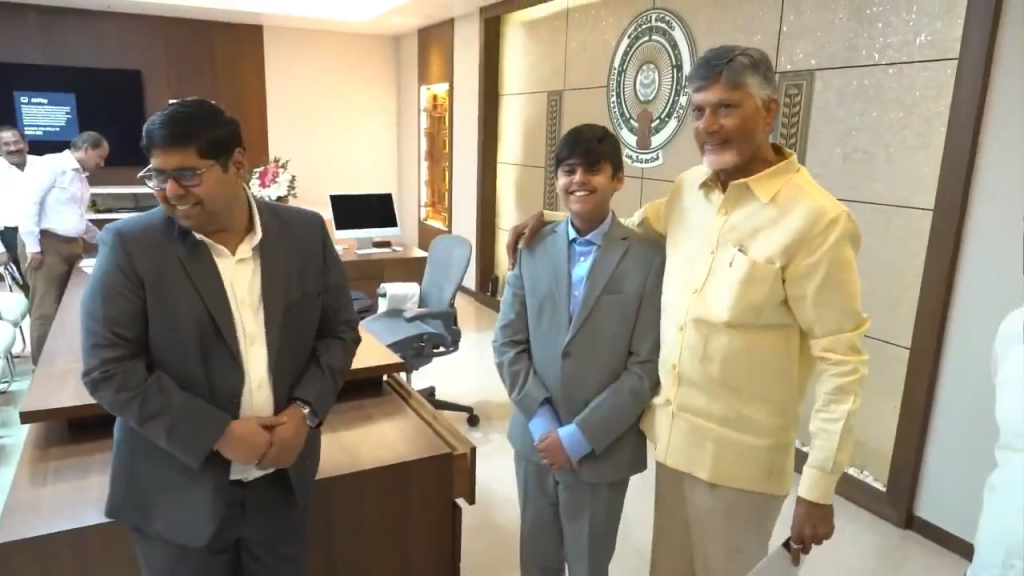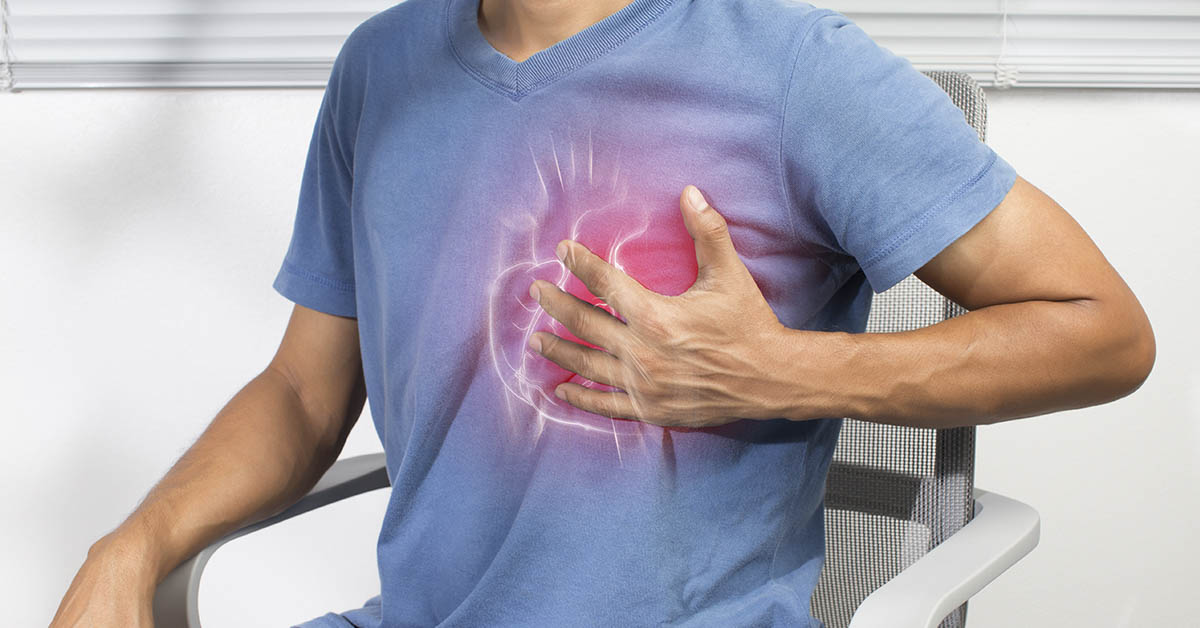Cardiovascular diseases kill more people than any other condition, taking 17.9 million lives each year globally, making them the leading cause of death worldwide. Soon, these silent killers could be spotted as easily as holding your phone to your chest, detecting heart disease before it becomes deadly.
Meet Siddarth Nandyala, a University of Texas freshman who spent eight months creating something that could change everything. His invention, called Circadian AI, is a smartphone app that can spot heart problems before they become deadly.
This Teen’s Been Changing Lives Since 7th Grade
In 2022, Nandyala designed a prosthetic arm for the Indian market. His design costs just $150, compared to conventional prosthetics that cost up to $30,000. He founded STEM IT, a startup selling educational kits to students, and created an armband that detects falls in elderly people with 96.1% accuracy, better than the Apple Watch.
His achievements haven’t gone unnoticed. The local Frisco Chamber of Commerce named him Innovator of the Year and awarded the then-seventh grader more than $2,000 to support his company. He has received recognition from the U.S. House of Representatives and congratulations from former President Joe Biden.
The Deadly Gap in Detecting Heart Disease
In most cases, a heart attack or stroke provides the first sign of cardiovascular disease, but by then, it’s often too late. Standard detection methods rely on expensive equipment. These include electrocardiograms, stress tests, and cardiac MRIs. These tools cost thousands and aren’t available everywhere. This creates a deadly problem since 80 percent of cardiovascular deaths occur in low and middle-income nations where sophisticated medical equipment remains limited or nonexistent.

Nandyala recognized this problem and decided to act on it. The young inventor says “The main focus and goal for me was to create a tool that helps a large amount of people through non-invasive screening.”
Your Smartphone Just Became a Medical Device
Circadian AI transforms your smartphone into something remarkable. It becomes a mini-stethoscope with superpowers. People will place their phones near their hearts to record heartbeat sounds. The app uses advanced noise cancellation to filter out background sounds, working even in chaotic environments. Amplification algorithms enhance the sound quality of these recordings. The app then sends the enhanced audio to a cloud-based machine-learning model. This model provides an overall summary of heart health through an easy-to-read interface explaining what’s normal and what might need medical attention.
The app can detect arrhythmias, irregular heartbeats, initial signs of heart failure, indicators of coronary artery disease, and heart valve abnormalities. “Obviously, there is diversity in results from test to test, but we achieved over 96 percent accuracy,” Nandyala reports.
The Results from 18,500 Real Patients
But does this heart disease detection technology work in practice? Real-world testing suggests it does. Nandyala tested the app in both the United States and India. Around 15,000 patients participated in the U.S. and 3,500 in India.
During trials in India, the results impressed observers. Nandyala’s app identified potential cardiovascular diseases in more than 40 patients. Each diagnosis took just seven seconds. At Government General Hospital in Guntur, the app identified around ten patients with heart problems that conventional diagnostic tools later confirmed.
The Silent Killer Hiding in Plain Sight
Many people don’t know they’re at risk because affected blood vessels often show no symptoms. The WHO identifies several key risk factors. These include unhealthy diet, physical inactivity, tobacco use, harmful alcohol consumption, and environmental factors like air pollution. These may show up as raised blood pressure, elevated blood glucose, high cholesterol, and obesity. These warning signs can be measured in basic healthcare facilities and indicate an increased risk of serious complications.
Often, a heart attack or stroke may provide the first sign of underlying disease, meaning you’re responding to a crisis rather than preventing one. Spotting problems early becomes necessary. It’s the difference between preventive care and emergency intervention.
Read More: Research Reveals Geographic Connection Between Dementia and Heart Disease
What Doctors Think About Detecting Heart Disease This Way
Dr. Jameel Ahmed, an electrophysiologist at Louisiana State University, says “There is incredible potential for heart-monitoring devices and apps such as Circadian AI to advance medical care,” particularly in reaching populations where access to care remains limited.
Ahmed believes identifying problems in patients who might not otherwise have access to medical care could reduce long-term illness and death. He also remains realistic about limitations, noting that the “quality and fidelity” of the microphone on the device being used might pose challenges. Medical professionals have traditionally used stethoscopes to listen for particular sounds and frequencies at specific times within cardiac cycles. Sometimes even experts need additional tests like echocardiography to confirm diagnoses.
Coming Soon: The App That Could Save Your Life
“We are not saying we will replace any machinery, like electrocardiograms or 2D echo. It is a pre-screening tool that gives an overall analysis of whether users have any issues in their heart.” Nandyala positions the app as a screening tool, not a replacement.
Currently, only authorized personnel can use the app for clinical purposes. The app continues undergoing regulatory approval processes. Nandyala plans a full-scale rollout throughout the U.S., India, and other countries for mass screenings at primary healthcare centers.
He’s not stopping there. The young inventor is already working on adapting the technology to identify respiratory issues such as pulmonary embolism, water retention, and pneumonia. “I don’t want to stop here,” he says.
“Even One Life Detected Is One Life Saved”
With cardiovascular disease expected to affect millions more in coming decades, his accessible, affordable heart disease detection could be exactly what the world needs. Nearly 6.7 million Americans aged 20 and above suffer from heart failure. This number will likely grow to 8.7 million by 2030, 10.3 million by 2040, and 11.4 million by 2050.

For Nandyala, every detection matters. “Even one life detected is one life saved.” Maybe a teenager with a smartphone app can help change those numbers. Sometimes the most powerful innovations come from the most unexpected places.
Read More: Tech Company Creates Revolutionary Floor Tiles That Turn Footsteps Into Power

